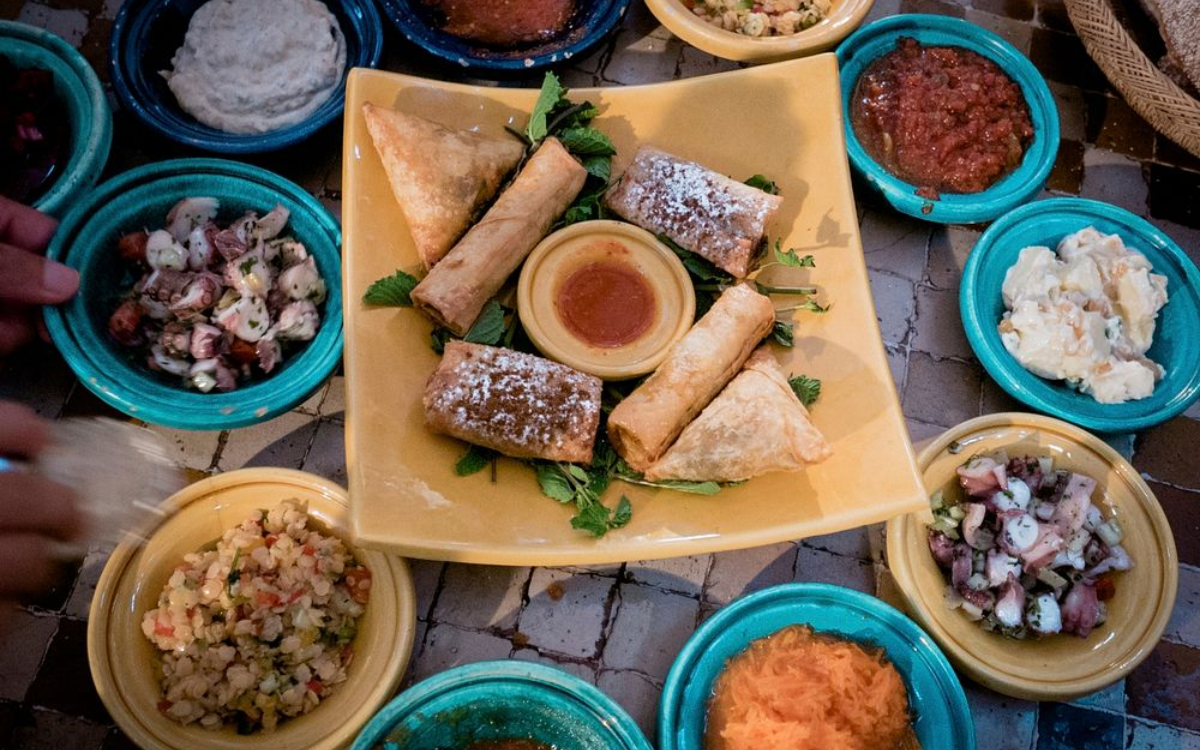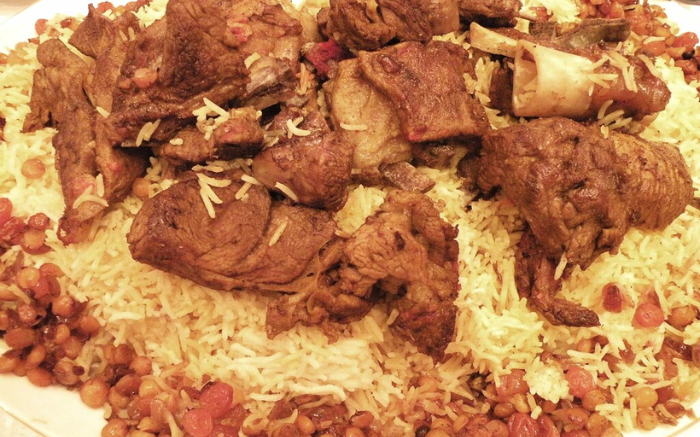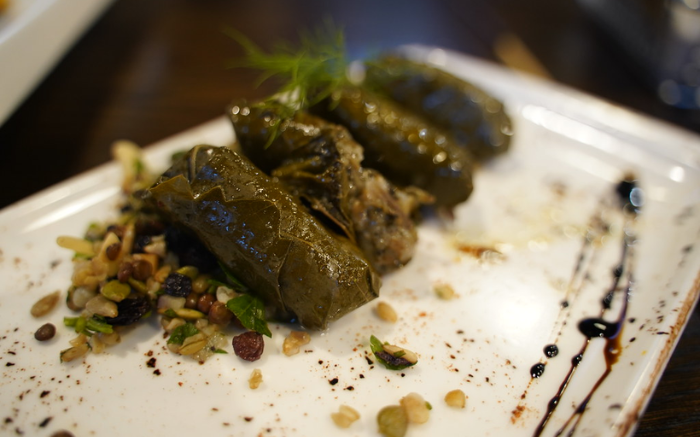
Flavors of the Emirates: A Guide to Authentic Emirati Cuisine
The United Arab Emirates (UAE) is a melting pot of cultures and traditions, and its cuisine reflects this rich heritage. Emirati cuisine is a tantalizing blend of Middle Eastern, Indian, and Persian influences, resulting in a unique gastronomic experience. This guide explores the essential flavors and dishes of the Emirates, providing a comprehensive overview of authentic Emirati cuisine.
Traditional Dishes:
Al Harees: Al Harees is a traditional Emirati dish that holds a special place in the hearts of the locals. Made from just a few simple ingredients—wheat, meat (usually chicken or lamb), and a pinch of salt—this dish is slow-cooked to perfection. The result is a creamy, porridge-like consistency that is both hearty and comforting. Al Harees is often enjoyed during Ramadan and festive occasions.
Machboos: Machboos, also known as Majboos, is a spiced rice dish that is a staple in Emirati cuisine. It is similar to biryani but has its unique blend of spices and flavors. The dish is prepared with basmati rice, meat (chicken, lamb, or fish), tomatoes, and a variety of spices such as turmeric, cumin, and cardamom. The slow cooking process allows the flavors to meld together, creating a fragrant and flavorful dish.

Shawarma: While Shawarma is popular across the Middle East, it has a special place in Emirati cuisine. This dish consists of marinated meat (typically lamb, chicken, or beef) that is slowly cooked on a vertical rotisserie. The meat is then thinly sliced and served in flatbread, often accompanied by garlic sauce, tahini, and pickles. Shawarma is a ubiquitous street food and a favorite among locals and tourists alike.
Luqaimat: Luqaimat are sweet dumplings that are a popular Emirati dessert. These deep-fried balls of dough are made from a simple batter of flour, yeast, sugar, and cardamom. After frying, they are drizzled with date syrup or honey and sprinkled with sesame seeds. Luqaimat are often enjoyed with a cup of Arabic coffee, especially during Ramadan and festive celebrations.
Seafood Delicacies:
Samak Mashwi: Given the UAE’s extensive coastline, seafood plays a significant role in Emirati cuisine. Samak Mashwi is a popular grilled fish dish that showcases the region’s fresh seafood. The fish is typically marinated with a blend of spices, including cumin, coriander, and garlic, then grilled to perfection. It is often served with rice or bread and a side of tangy lime.
Jasheed: Jasheed is another beloved seafood dish made from baby shark or other small fish. The fish is cooked with a mixture of onions, garlic, and spices, then shredded and served over rice. The dish’s unique flavor profile and tender texture make it a must-try for seafood enthusiasts.
Vegetarian Options:
Salatat Al Jazar: Salatat Al Jazar, or carrot salad, is a refreshing vegetarian dish commonly enjoyed in the UAE. This salad combines grated carrots with a tangy dressing made from lemon juice, olive oil, and cumin. It is often garnished with fresh herbs like parsley and mint, adding a burst of flavor and color.
Stuffed Vine Leaves: Stuffed vine leaves, also known as Warak Enab, are a popular vegetarian option in Emirati cuisine. These delicate parcels are made by wrapping vine leaves around a filling of rice, herbs, and spices. The stuffed leaves are then simmered in a lemony broth, resulting in a tender and flavorful dish.

Beverages:
Arabic Coffee: Arabic coffee, or Gahwa, is an integral part of Emirati hospitality. This aromatic coffee is brewed with lightly roasted coffee beans and flavored with cardamom. It is traditionally served in small cups along with dates. The preparation and serving of Arabic coffee are considered an art form, reflecting the warmth and generosity of Emirati culture.
Jallab: Jallab is a refreshing beverage made from a blend of grape molasses, rose water, and smoked dates. It is typically served over ice and garnished with pine nuts and raisins. This sweet and fragrant drink is perfect for cooling down on a hot day and is especially popular during the summer months.
Dining Etiquette: Understanding local dining etiquette enhances the culinary experience and shows respect for Emirati culture. When dining in the UAE, it is customary to eat with the right hand. Sharing food is common, and meals are often served family-style. It is polite to accept a small portion of each dish offered and to compliment the host on the food.
Modern Takes on Traditional Dishes:
Emirati cuisine is not static; it continually evolves with contemporary influences and innovative interpretations. Modern Emirati chefs are experimenting with traditional flavors and ingredients, presenting them in new and exciting ways. This fusion of tradition and modernity can be experienced in upscale restaurants and culinary festivals across the UAE.
Exploring Emirati Cuisine with Convenience:
For those who prefer the convenience of dining at home, food delivery services offer a wide range of authentic Emirati dishes. Platforms like Careem provide a seamless way to explore the flavors of the Emirates. Utilizing a Careem offers, Careem promo code, or Careem food promo code from Paylesser AE can make this culinary exploration even more affordable. These codes provide significant savings on a variety of dishes, allowing you to indulge in the rich tapestry of Emirati cuisine without leaving the comfort of your home.
Conclusion:
The flavors of the Emirates offer a rich and diverse culinary journey that reflects the UAE’s cultural heritage and contemporary innovation. From traditional dishes like Al Harees and Machboos to modern interpretations and convenient dining options, Emirati cuisine caters to all palates. By exploring these flavors, one gains a deeper appreciation for the UAE’s history, culture, and the art of its culinary traditions. Whether dining out or ordering in using Careem discount code the gastronomic delights of the Emirates are sure to provide an unforgettable experience.


